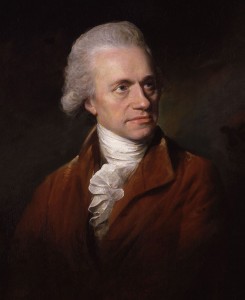 Today is the 277th birthday of William Herschel, a man who shows us just how vast the change has been in the fortunes of the arts and sciences.
Today is the 277th birthday of William Herschel, a man who shows us just how vast the change has been in the fortunes of the arts and sciences.
Herschel has often been dubbed the Father of Modern Astronomy, the first person to discover a planet unknown to the ancients, a fellow renowned for building some of the finest telescopes of his day.
But his day was not an optimal time for scientists. If you hadn’t inherited a fortune, your best hope was to find another profession for paying the bills.
So how did William pay his bills? By composing symphonies, of course: twenty-four of them. That and playing the oboe, violin, harpsichord and organ, and training his sister Caroline to sing his sacred works.
In my lifetime, I’ve met hundreds of composers – many of them quite well-known and highly regarded — who made their living from something other than writing music. But I’ve never met a scientist who paid the rent by composing. It’s a fun thought.
Incidentally, given his accomplishments, it’s safe to assume that Herschel had an outstanding ear and an outstanding eye, but I suspect his olfactory sense was not quite so discerning. The lenses on his telescopes were fashioned with molds made out of horse dung he collected especially for that purpose.
Can’t leave the subject without noting that sister Caroline ended up being a very successful astronomer herself, discovering several nebulae and comets. All of which proves something about singing for your supper, I’m sure.

Lovely point, Lawrence, and I was delighted to see Herschel’s name in ArtsJournal. (My own work spans the arts and science engagement, but the twain rarely meet on this site.) There’s a terrific book about (among other figures) William and Caroline Herschel: The Age of Wonder by Richard Holmes. Sounds like you may have read it already, and your readers — especially those enamored of the overlaps between literature, the arts, and the sciences — might enjoy it.